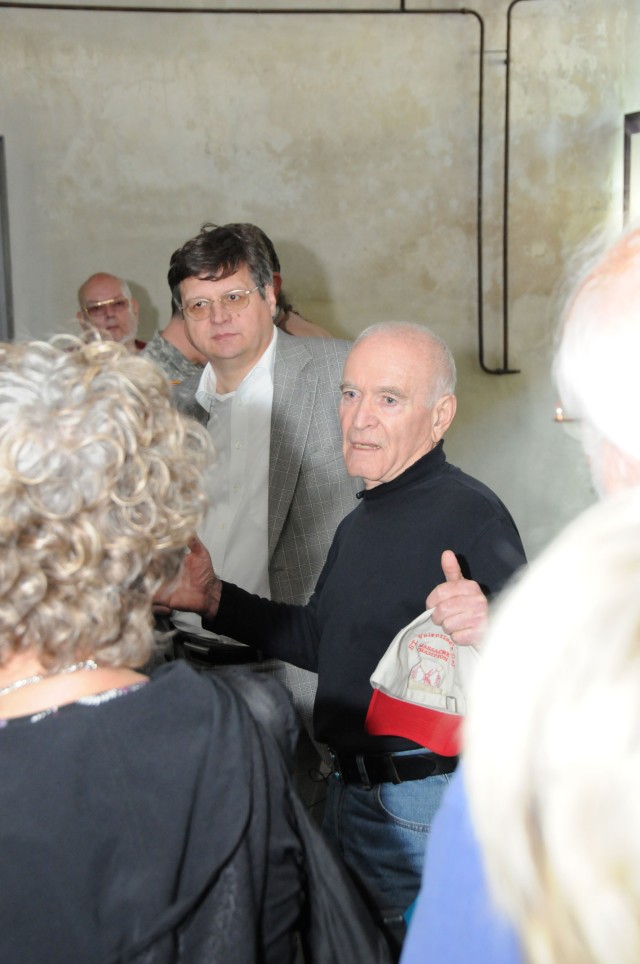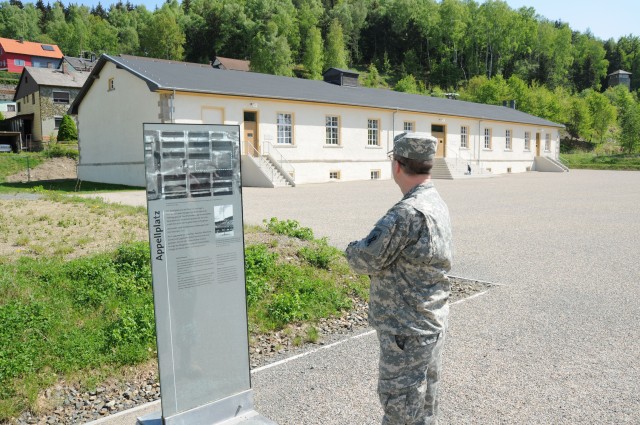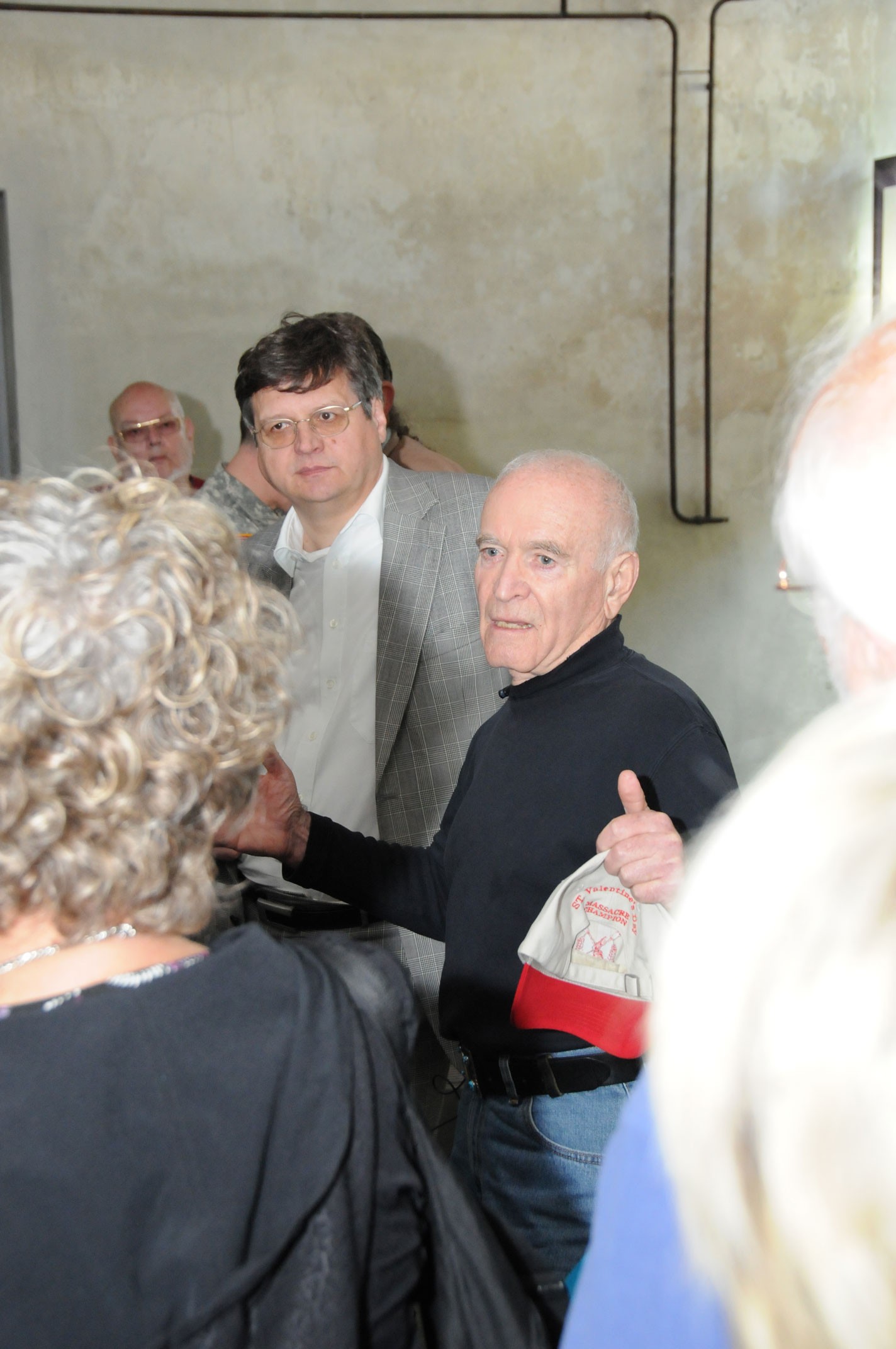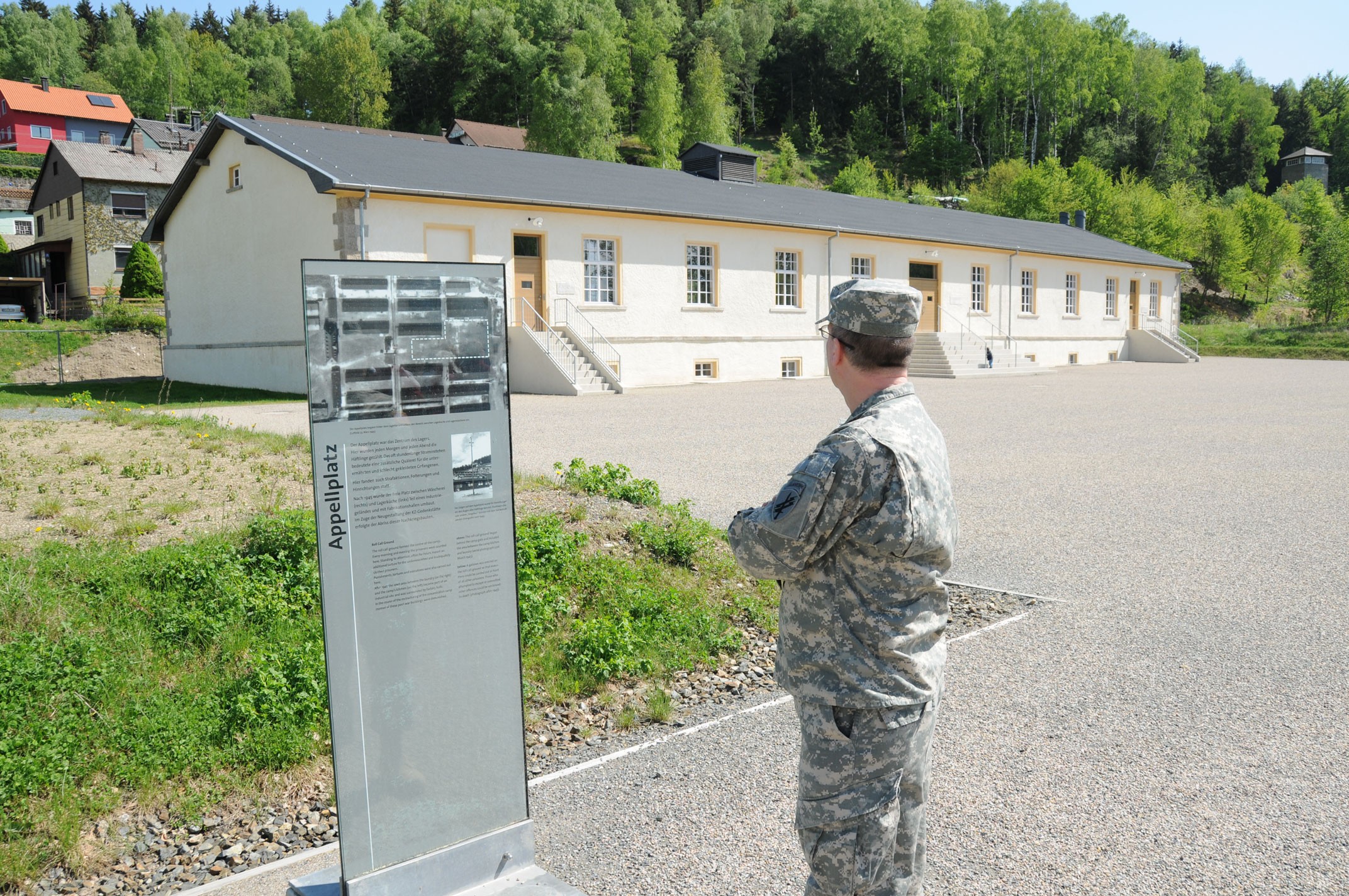GRAFENWOEHR, Germany - "I left Flossenburg as soon as possible, but Flossenburg has never left me."
These were the words Dr. Jack Terry used to sum up his experiences as a survivor of the Flossenburg Concentration Camp during World War II. Terry was the guest speaker at the Joint Multinational Training Command (JMTC) Equal Opportunity Office's "Days of Remembrance" ceremony in Grafenwoehr on May 1st.
Approximately 100 Soldiers, DA Civilians and Family Members listened as Terry shared his tragic story of survival during the Holocaust. Following Terry's presentation, the group held a candle lighting ceremony to remember the more than 11 million victims of the Holocaust. The United States Congress established the Days of Remembrance as an annual commemoration of victims of the Holocaust during World War II. This year's theme was "Never Again-What You Do Matters."
In keeping with the theme, Terry reminded the audience that not only does it matter what you do, but also, "what you don't do."
Terry also led a group of 67 Grafenwoehr community members on a tour of the nearby Flossenburg Concentration Camp, where Terry had been an inmate during the final year of the war. He was assisted by his friend, Karlherman Schotz, Dean of the Evangelische Church, in Sulzbach, Germany.
Terry was born Jakub Szabmacher in Belzyce, Poland in March of 1930. The youngest of four children, he was the only member of his family to survive the Holocaust. During the presentations, he related how his world was changed forever when the Nazi's entered his small village in September of 1939. Suffering humiliation and constant fear of death, Terry told of his journey through the concentration camps of Nazi-occupied Poland and Germany. He witnessed the murder of his mother, sister and brother by the Nazis, and later learned of the death of his father and remaining sister in the camps.
Terry arrived at the Flossenburg Concentration Camp on the Czechoslovakia-German border in August, 1944. At Flossenburg, the 14 year old Terry was forced to work in the granite quarry, an airplane factory and in the camp laundry.
In April 1945, a fellow inmate from Czechoslovakia hid the young Terry as the Nazis evacuated the Flossenburg camp in advance of Allied forces. Only those ill and in the hospital ward were left behind. Of the 22,000 evacuated inmates, 7000 died from exhaustion or were shot by the guards on their 200 kilometer death march. When the camp was liberated on April 23rd, 1945 by the US Army's 90th Infantry Division, Terry was the youngest of the remaining inmates and the only Jew who remained at the camp.
Terry briefly served as the gate keeper at the newly-liberated Flossenburg before being moved to a U.S. Army medical battalion headquarters. An Army doctor in medical battalion, Lt. Col. Louis Leland, took an interest in Terry and moved him to France and eventually helped secure passage to the United States. Terry says he has a special place in his heart for the U.S. Army. "They saved my life," said Terry. "For a long time the only people I was able to trust were U.S. soldiers."
Five years after his liberation from Flossenburg, Terry graduated from Brooklyn Technical High School, and from the Colorado School of Mines in 1954 as a Geologist on an ROTC scholarship. He served in the U.S. Army at the Engineer Intelligence Center in Schwetzingen, Germany from 1955 to 1957. One of his duties as a young Army engineer was to study the unusual rock formations near Flossenburg, Germany.
In 1960, Terry returned to the U.S. and attended the Colorado University Medical School, where he earned his MD in 1964. Terry subsequently became a Resident in Psychiatry and received training in Psychoanalysis at the New York Psychoanalysis Institute. Terry retired from an Associate Professorship in the Psychiatry Department at Cornell University and from his private practice as a clinical psychiatrist in New York City where he has treated many former concentration camp survivors.
Terry has been deeply involved in the Holocaust memorial activities and travels frequently to speak and educate. He has been married to his wife, Louise, for 49 years, they have three children and five grandchildren.
Terry travels to Germany several times a year for Holocaust memorial events. His next visit will be in July for a reunion of the surviving inmates of the Flossenburg Camp.




Social Sharing